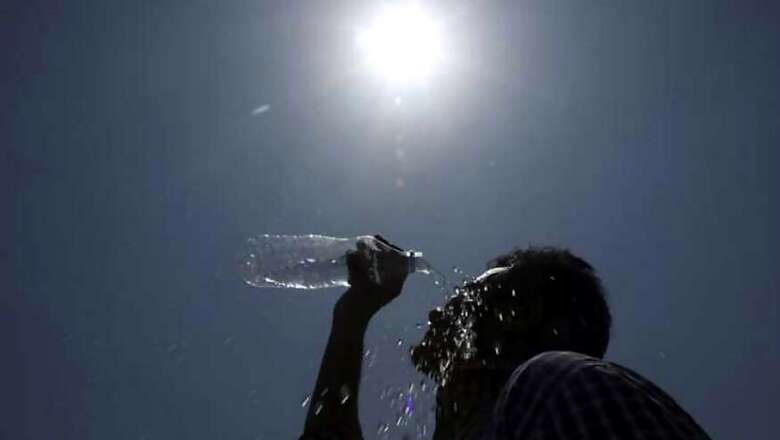
views
The India Meteorological Department (IMD) has issued a 'red alert', used for a severe heatwave, for parts of Delhi for Monday and Tuesday, with the day temperature likely to touch 46 degrees Celsius by Tuesday.
Stifling heat gripped the national capital on Sunday with the maximum temperature hovering close to 45 degrees Celsius in most parts of the city.
"Heatwave will prevail in many places and severe heatwave in isolated places. Mainly clear sky with strong surface winds (20-20 kilometres per hour)," the IMD forecast said.
The Safdarjung Observatory, which provides representative figures for the city, recorded a high of 44.4 degrees Celsius, which was five notches above the normal, on Sunday. The minimum temperature was recorded at 28.7 degrees Celsius, two notches above the normal.
The weather stations at Palam, Lodhi Road and Ayanagar recorded their respective maximums at 45.4 degrees Celsius, 44.2 degrees Celsius and 45.6 degrees Celsius.
Kuldeep Srivastava, the head of the regional forecasting centre of the IMD, said some respite from the stifling heat is expected in the national capital on May 28 due to a fresh Western Disturbance and easterly winds at lower levels. "Dust storm and thunderstorm with winds gusting up to 60 kilometres per hour is likely over Delhi-NCR on May 29-30," he said.
Besides Delhi, the IMD has issued "red warning" in Punjab, Haryana, Chandigarh and Rajasthan for the next two days. It has issued "orange" warning for eastern Uttar Pradesh.
Weather Update pic.twitter.com/aMmnzeiE7y — RWFC New Delhi (@RWFC_ND) May 24, 2020
In large areas, a heatwave is declared when the maximum temperature is 45 degrees Celsius for two consecutive days and severe heatwave when the mercury touches the 47 degrees Celsius mark for two days on the trot.
In small areas, like the national capital, a heatwave is declared if the temperature soars to 45 degrees Celsius even for a day, according to the IMD.
“The warning has been issued to caution people not to step out between 1pm and 5pm, when heat is most intense," Srivastava said.















Comments
0 comment